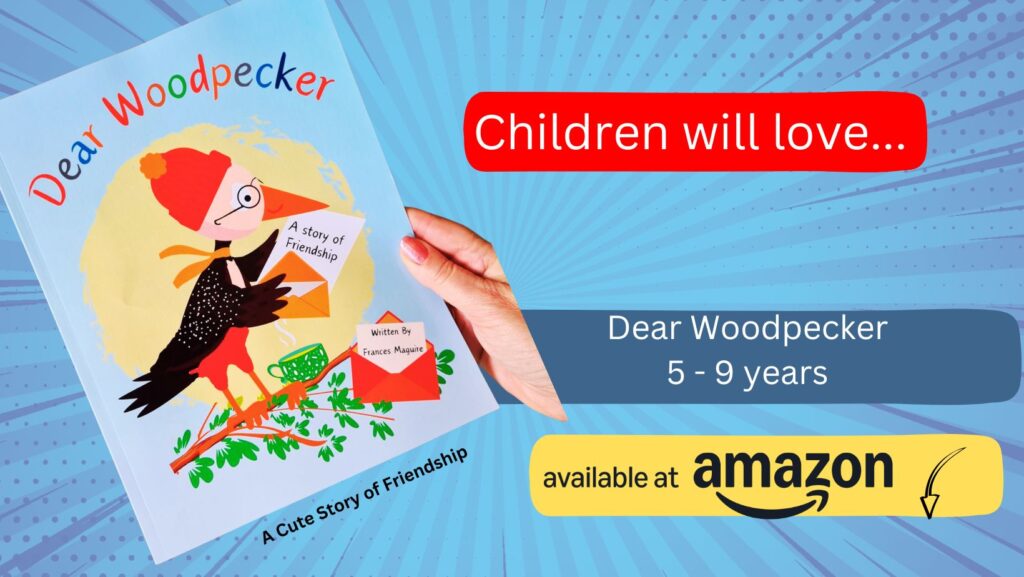5 min read.
Help Your Child To Read. Read on for tips and advice.

Frances Maguire Magspens.co.uk
Frances has worked in education for 25 years. Specialising in Early Years, she has just completed a Masters in Education at Chichester University. Frances works in Hampshire teaching in Reception and KS1 classes. Frances has also taught adult education Early Years Level 3 courses to the aspiring childcare workforce.

Help Your Child To Read
Help your child to read because this will give them confidence as they progress through school. As an educator for over 25 years, I can testify to seeing the transformative impact of teaching children to read. Ofsted (2023) Click here reinforces the research that reading is the gateway to knowledge, imagination, and lifelong learning and inspects schools to ensure reading standards are as high as possible. If children fall behind in their reading ability this will cause them problems because they are less likely to access the school curriculum as widely as children who can read fluently. While schools are responsible for literacy and ensuring children are taught to read, the importance of collaboration between school and home cannot be overstated. This is because working together, educators and parents can create a powerful support system that maximises a child’s potential and fosters a love for reading.
Schools
Schools provide a structured learning environment and expert teaching. From the early teaching of phonics to the complexities of comprehension, teachers in schools are trained and experienced to address the diverse needs of students. However, the learning process should not stop at the school gate because parents can play a crucial role in helping to reinforce what children learn in the classroom which will improve your child’s reading skills.

Help Your Child To Read At Home – Create A Cosy Place
You can Improve reading skills by creating a reading-friendly atmosphere at home. This will consequently, enable you to contribute significantly to your child’s reading development. This includes setting aside dedicated reading time and providing access to a variety of books, and engaging in discussions about the stories. Read at home yourself because children will copy you! Click here for ideas to help reading at home.
Studies consistently show that parents who help their child to read and are actively involved in their education tend to perform better academically because emotional backing will help children feel secure and motivated. When it comes to reading, parents can serve as reading role models, showcasing the enjoyment and importance of reading. Reading together not only enhances a child’s skills but also strengthens the parent-child bond. Click here to read the research.

Partnership With Home And School.
The partnership between school and home allows for a more personalised approach to reading instruction. Teachers provide information about the child’s progress and parents offer observations about their child’s strengths and areas that need attention. Click here for advice about teaching reluctant readers.
Beyond the mechanics of reading, instilling a love for reading is crucial. Schools can create engaging reading programs, book clubs, reading buddies and literary events. Additionally, parents can nurture a positive reading culture at home. The partnership between school and home can shape a child’s perception of reading from a mere skill to a source of imagination and joy.
Reading for pleasure has been highlighted by BBC radio 4. The renowned author Sir Michael Morpurgo shared his thoughts and memories of reading for pleasure as a child. He is now the best selling author of over 150 books. Click here to read BBC article. Other authors who have recently spoken about the importance of reading are Julia Donaldson, and Joseph Coelho.
Barriers to Reading.
It has to be acknowledged that money can be a barrier for parents when helping their children to read because books are expensive. However, there are ways to find free books. Look out for book swaps and library give aways of discontinued books as well as joining the library. Schools should be able to help with this too because they are invested in helping you to improve your child’s reading skills.
Click here for information on encouraging reading for pleasure.

The partnership between school and home is not just beneficial; it’s essential because together, schools and parents can provide the all round support needed to unlock a child’s full potential and cultivate a lifelong passion for reading. One of the greatest gifts we can give our children is our time to help the develop a reading habit because this will open doors to a love of lifelong learning.
Frances Maguire.

References
The Effect of Parent-Involved Reading
Activities On Primary School Students’
Reading Comprehension Skills,
Reading Motivation, and Attitudes
Towards Reading*
Emir Feridun Çalışkana,**, Abdulhak Halim Ulaşb
